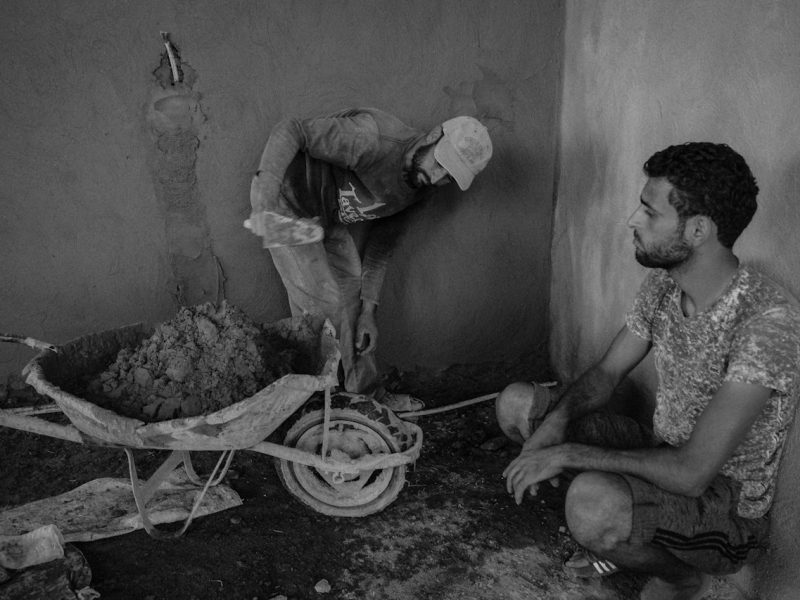Distinguished Ladies and Gentlemen!
A cordial greeting to all of you on the occasion of the VIII Rome MED Dialogues
Conference, which for several years has been an appointment promoted by the
Italian Ministry of Foreign Affairs and International Cooperation and by the Institute
for International Political Studies, in order to promote shared policies in the
Mediterranean area.
The method of this Conference is significant and important in itself, namely the
commitment to dialogue, discussion, common reflection, the search for solutions or
even just coordinated approaches towards those that are – and can only be – the
common interests of the peoples who, in the diversity of their respective cultures,
overlook the mare nostrum. A sea which, in its history as a medium terrarum, has a
vocation for progress, development and culture which unfortunately seems to have
lost in the recent past and which needs to be recovered fully and with conviction.
In fact, the Mediterranean has the great potential of bringing three continents into
contact: a link which historically, also through migration, has been extremely
fruitful. Africa, Asia and Europe border on it, but too often we forget that the lines
that delimit are also those that connect, and that the ambivalence of the term
“border” can also allude to a common goal: cum-finis. This is an aspect of which the
civilizations that preceded us and of which the Mediterranean was the cradle were
well aware. With regret we have to note that this same sea, today, finds it hard to
be experienced as a place for meeting, exchange, sharing and collaboration. Yet, at
the same time, it is precisely at this crossroads of humanity that many
opportunities await us. We must therefore resume the culture of encounter from
which we have benefited so much, and not just in the past. In this way it will be
possible to rebuild a sense of fraternity, developing, in addition to more just
economic relations, also more human relations, including those with migrants.
This Conference has the advantage of relaunching the centrality of the
Mediterranean, through discussions on an agenda particularly rich in topics, which
range from geo-political and security issues, to the protection of fundamental
human freedoms, to the challenge of migration, to the climate and environmental
crisis.
The importance and multiplicity of the topics submitted to your reflection calls for a
fundamental consideration. This variety is itself already significant of how
ethical-social themes cannot be separated from the multiple situations of
geopolitical crisis and also from the environmental problems themselves. The idea
of tackling individual issues in a sectoral way, separately and regardless of the
others is, in this sense, a misleading thought. In fact, it involves the risk of arriving
at partial, defective solutions, which not only do not solve the problems but make
them chronic.
I am thinking in particular of the inability to find common solutions to human
mobility in the region, which continues to lead to an unacceptable and almost
always avoidable loss of human life, especially in the Mediterranean. Migration is
essential to the well-being of this area and cannot be stopped. Therefore, it is in the
interest of all parties to find a solution that is inclusive of the various aspects and
the right instances, which is beneficial to all, which guarantees both human dignity
and shared prosperity.
The interconnection of the problems requires that they be examined together, in a
coordinated and broadest possible vision, as emerged overwhelmingly already
during the pandemic crisis, another clear confirmation that no one is saved alone.
This globalization of problems reappears today with regard to the dramatic war
conflict underway within Europe, between Russia and Ukraine, from which, in
addition to the incalculable damages of each war in terms of civilian and military
victims, the energy crisis , the financial crisis, the humanitarian crisis for so many
innocent people forced to leave their homes and lose their dearest possessions and,
finally, the food crisis, which affects a growing number of people all over the world,
especially in the poorest countries. The Ukrainian conflict is in fact producing
enormous repercussions in North African countries, which depend for 80% on wheat
from Ukraine or Russia. This crisis urges us to consider the totality of the real
situation from a global perspective, just as its effects are global. Therefore, just as
it is not possible to think of tackling the energy crisis apart from the political one,
one cannot at the same time resolve the food crisis apart from the persistence of
conflicts, or the climate crisis without taking into consideration the migration
problem, or the to the most fragile economies or even the protection of
fundamental freedoms. Nor can it be taken into consideration detract from the
vastness of human suffering without taking into account the social crisis, in which,
for economic or political gain, the value of the human person is diminished and
human rights are trampled underfoot.
All of us must become increasingly aware that the cry of our battered planet is
inseparable from the cry of suffering humanity. In this regard, the words dictated
about two thousand years ago by Saint Paul in the Letter to the Romans resonate
as timely as ever, where he presents the common destiny of humanity and creation,
which – says the Apostle – nurtures the hope of being freed from the slavery of
corruption, to enter into the freedom of the glory of the children of God, in view of
which all creation groans and suffers in birth pangs to this day (see 8:21-22).
This is not only an otherworldly goal, but also the horizon of the commitment of
men and women of good will. May it also be the horizon of your dialogues! With this
wish I wish you a serene and fruitful work, assuring my prayers for this and
invoking God’s blessing upon all of you.




